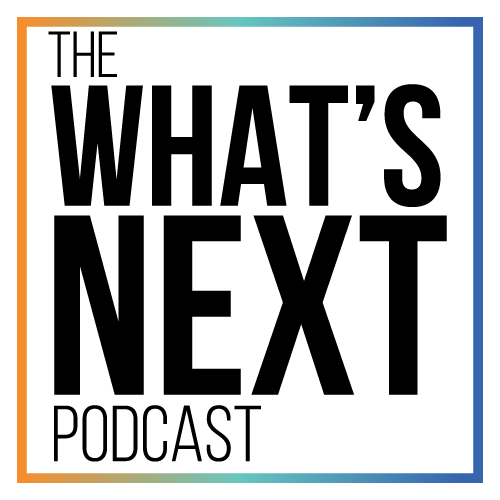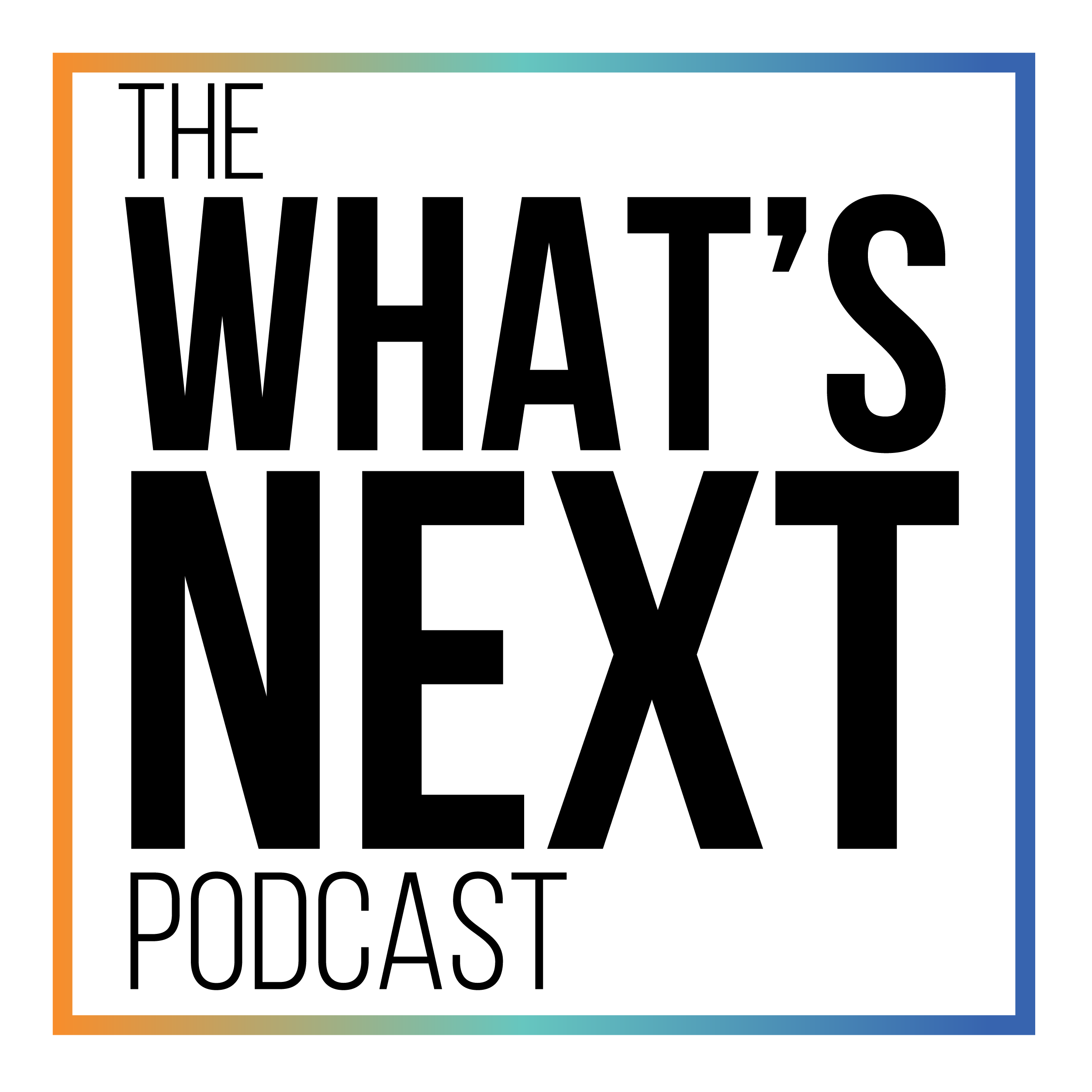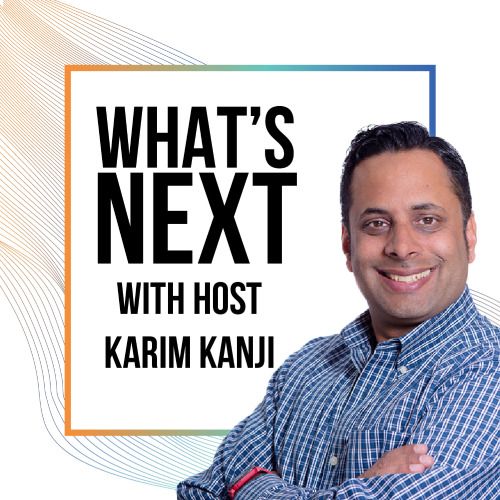Episode 17
What's Next with Rachel Wiseman
On this episode of The What's Next Podcast, we speak to Rachel Wisemen.Rachel is the Chief Executive Officer at NRMA Expeditions, a division of NRMA Limited.
ABOUT RACHEL WISEMAN
Rachel Wiseman is the Chief Executive Officer of NRMA Expeditions. Rachel is charged with growing the organization's interest in experiential tourism, with a focus on bespoke product that showcases Australia’s natural environment. Prior to this, Rachel served as NRMA Group’s Chief Investment Officer leading the commercial interests of the Group including corporate development, investments and strategy. A member of the Australian Institute of Company Directors, Rachel has held executive positions across the entertainment and media industries including Tabcorp, Fox Sports and Telstra.
Transcript
Karim Kanji:
Hi, my name is Karim Kanji and this is the What's Next podcast, produced and brought to you by Active International.
Today I'm excited to be speaking with Rachel Wiseman. Rachel is the CEO of NRMA Expeditions, based in Australia. He's charged with growing the organization's interest in experiential tourism with a focus on bespoke product that showcases Australia's natural environment. I hope you enjoy the conversation. Thank you for joining us.
Rachel Wiseman:
Hi, I'm Rachel Wiseman, I'm CEO of NR- NRMA Expeditions. It's a new business being built under the NRMA group of businesses. We are the wild places company and we exist to connect people to nature, each other, themselves again, and hope for inspiring those moments of joy.
Karim Kanji:
Rachel, thank you so much for joining me today.
Rachel Wiseman:
You're welcome. I'm excited to be here.
Karim Kanji:
So, uh, the travel industry obviously has, uh, experienced things that a lot of businesses have, especially the past few years, a lot of downs, a lot of ups, recovery. I understand, uh, that it's made a strong, uh, comeback post pandemic. I traveled myself, uh, this past summer here, uh, north of the equator. How, how do you see the travel industry specifically evolving over the next couple of years, both in Australia where you are, but as well overseas? What are you seeing?
Rachel Wiseman:
Well, I'm seeing an industry right now that has come out of a very bleak period. I think COVID, uh, v-, impacted tourism and many other industries, uh, to the point everything stopped. So right now, businesses in Australia and I've just come back from traveling in Europe myself, are just trying to, you know, we're through the brushing off the cobwebs stage and we're at the point now of refocusing on the customer and what we've got to get right to keep, uh, keep our customers happy.
I think anyone who's traveled recently would notice there are, um, eh-, staff wanted signs absolutely everywhere. Things aren't quite as smooth as they used to be, um, and it's a lot more expensive, so we've seen inflation pick up too over this last period, so we're getting used to, uh, uh, being resilient and adapting quite quickly out of all these shocks, but I think particularly we are seeing that our guests really want that nature-based experience, they want to disconnect. They've been trapped at home in front of their computers on endless Teams and Zoom calls, uh, that's not what they want. They want to be in nature, uh, they want to be free to, to walk, to bike, or simply just to restore in a beautiful place and be looked after. Uh, I think we're gonna see more of that, that return to nature, that return to, uh, a little bit of cocooning but away from the home, uh, and, and that connection with, with others.
Um, we've invested in some beautiful lodges in Tasmania which are very remote, um, and we've seen demand off the hook since, uh, since we've come out of COVID, but the reason for that is there are, a way that people could keep safe in quite a wild environment, uh, so they could go out and come back and be fed good food, wine, lovely place to sleep, uh, and that's what we're seeing, uh, is really resonating with people in Australia.
And as we look abroad, um, there, there the same sort of dynamic is happening. They want to connect, you know, coastal areas, um, walks, uh, cruises are actually coming back a l-, very strongly which is counterintuitive given the bad wrap that they got, uh, during COVID, but particularly these small expedition-style cruises, so 120, 180 people on board, uh, that give people the opportunity to actually get off the ship two or three times a day to go and explore the regions. Um, we're seeing those as really strong thematic behind that at the moment and, uh, and people can't get enough.
And people, curing COVID, uh, who had booked, didn't want their money back. They held out for two or three years just so they could get on, on the ship and travel again and reserve their position. So I have a suspicion the desire never went away, uh, it's just doubled down now we've come out the other side.
Karim Kanji:
That's really interesting. Yeah, a lot of people were traveling a lot, uh, uh, this past season.
Uh, trying to understand, I mean, I think you, you alluded to a bit of it, uh, in your answer there. Uh, y-, why people are beginning to opt for this new type of ecotourism too, if, if we wanna give it a name. I mean, why are people moving that way or, or e-, or has there been a long transition already?
Rachel Wiseman:
I think the transition has been long. I h-, I really feel like it's not, ecotourism isn't a differentiator anymore. We, where we s-, where we, uh, might have thought getting rid of plastic in rooms, uh, would set us apart, uh, that's as an example from other operators, now it, particularly in Australia, it's just a p-, y-, your license to exist and to offer this service. It's one of the things people are expecting as a bottom line.
Uh, we're, where we are shifting to as a business is actually to try and not just, uh, conserve but invest to make the places we operate in even better. Um, and we think that's where we all need to head to. We've all seen pictures of the huge cruise ships parked alongside the port and at, you know, in Venice and you can't see anything f-, beyond them. Um, we, we see that if operators are going to do that, the communities want something in return for that and that something is w-, is not just that we're bringing all these people, it's that we are investing in infrastructure, we are investing in the community, we're telling the stories of the local community and through that, I, I believe and, and our business believes that people walk away with a clear understanding and a heightened sense of care. And when people care about environments and the communities that they've been in, they will do something to look after them, even if it's not doing something to, just, you know, to destroy it a little bit. Um, so we think that's vitally important and it's a core sort of value, uh, of ours.
Karim Kanji:
That is really, rally nice. Really, really interesting. Uh, you know, I, I, that reminds me of y-, it's not a saying but, you know, in business, we, we always have been speaking about profits but, uh, rec-, not recently but, eh-, you know, it's been a trend over the past number of years where people are saying, "There needs to be more." It's, it's about profit, yes, but it's also about people, uh, as well. It's about planet and, uh, you know, what, what are the outcomes that impact not just profit but also people and planet, uh, as well.
Rachel Wiseman:
s there. And so at [inaudible:Karim Kanji:
So you've talked a bit about, uh, what NRMA is doing, um, uh, ah- as a business, uh, both with its members as well as, you know, in the communities that they operate in. If we take a look at travel industry as a whole in Australia, uh, and maybe with a global lens as well, uh, in, in your, your thoughts, in your opinion, what actions does the travel industry need to take to continue to support responsible travel, if you will.
Rachel Wiseman:
Oh, this so much, this so much, and we are just at the beginning of our journey. So, I think what you mentioned earlier, Karim, is that it's a people industry, so we'd have to look after our people, I mean, that's the very first thing. If we're not looking our people, they're not looking after our guests, and they're not looking after our communities, so that's our starting point.
Um, we then are very involved in, in the transition to green energy, so we own an investment in, uh, three small cruise ships, uh, 120 people at the, at, at the most. We have ferries that run on Sydney Harbor, um, we have diesel generators that sit to operate some of our properties that are very remote, so we do a lot of work now in thinking about transition to hydrogen for propulsion technology. Um, we are thinking and rolling out, uh, NRMA generally's rolling out an electric vehicle charge network. We are very interested in looking at community batteries that run off solar and Australia's pretty blessed that we, we have a big solar, uh, opportunity with solar.
But, and globally, we can see businesses like, businesses like Hurtigruten which is a large, um, expedition cruise ship company making that transition and experimenting with hydrogen as a propulsion technology.
But in Australia, we also have an obligation on the S side of th-, on the, uh, to really look after and tell the stories and enable our indigenous population to tel their stories and that's a big part of tourism in Australia. It's growing, uh, and we've got a lot of work to do there because it's in a fraught history and people are shy to talk about it, so it means we have to work hand in glove with the local communities, uh, and really take the lead from, from the traditional owners and let them guide the way for us, uh, and we're going to stuff up, right? That is absolutely going to be, and we're going to have to learn and keep that humility while we do and I think lots, that's a story sort of globally that we need to, yeah, learn from. I think New Zealand does it very well, uh, eh, with the Maori population, uh, the Maori customs and traditions, uh, and, and we can all learn something from that.
Karim Kanji:
Wow, that's really amazing.
Rachel, what's next for the travel industry in Australia, globally, are, are there lessons that we've learned, uh, because of COVID, that will impact, um, you know, post-pandemic growth, what's next?
Rachel Wiseman:
Mm. I think next is this premiumization and, and the search for value from, from travelers. t will all, it will cost more, uh, we know that, we've seen inflation hit, so how do we add that next level of value, so extreme custom, customer-centricity has to lead that. Um, really know who you're offering your product to and what they want. And Australia particularly, we know that there is a high demand for more premium accommodation in these remote areas, you can find it in the metros, but you can't find it regionally as easily, so we see that as a big thematic coming through. The expedition and the small group touring we see as a next thematic globally. Uh, people don't want to be in the large groups post-pandemic. They want to be in smaller groups of like minded people where they learn from each other as en-, as well as have fun with each other during the tour, so I can see smaller, local, uh, until we get, uh, the airline industry brings back all the capacity, I think it's going to be domestic tourism for a little while longer.
Karim Kanji:
Rachel, thank you so much for joining me today. This has been a very enlightening conversation. Thank you again.
Rachel Wiseman:
Thank you for having me. I enjoyed it.
Speaker 3:
Power your advertising. Working with Active International enables you to fund your advertising using your company's own products, assets, or even services. We have over 30 years experience connecting and bringing value to businesses all over the globe, helping many brands scale up into household names. Want to achieve more from your marketing spend? Contact Active International today.


